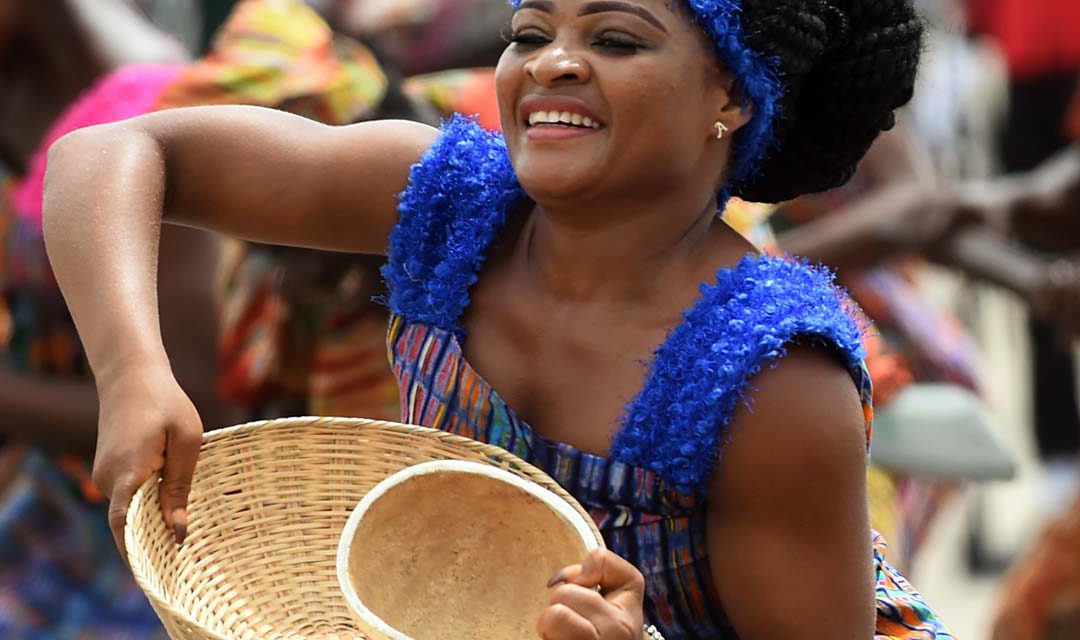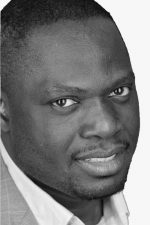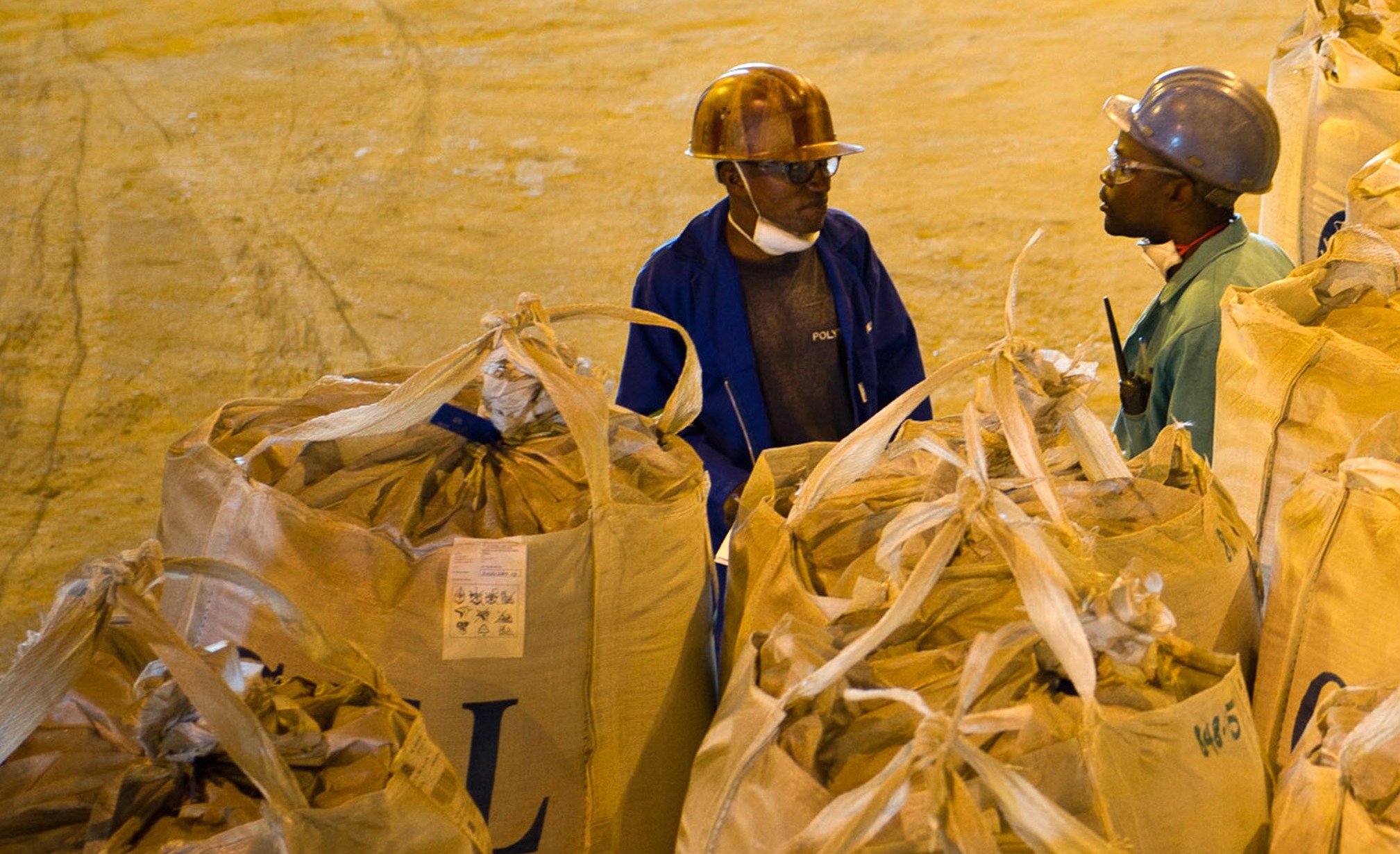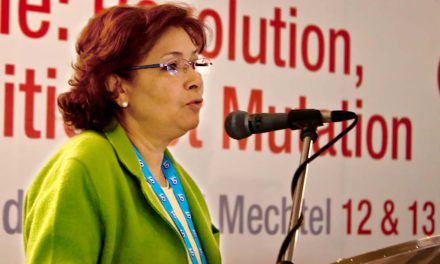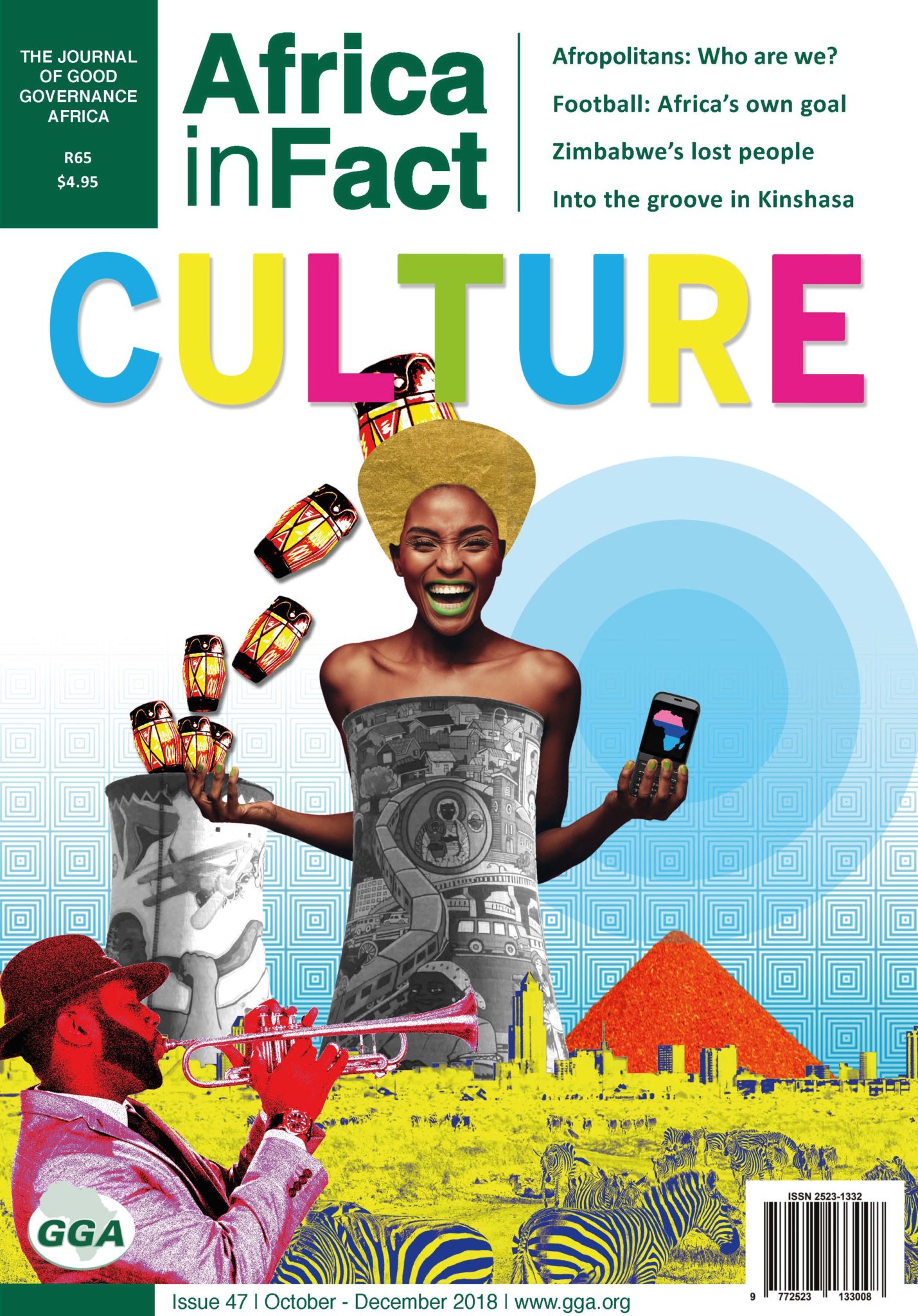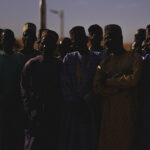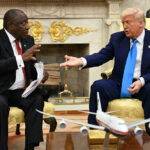Nigeria: 20 years of democracy
Political scientists agree that unfettered access to oil cash was a key factor in the character and duration of military rule in Nigeria
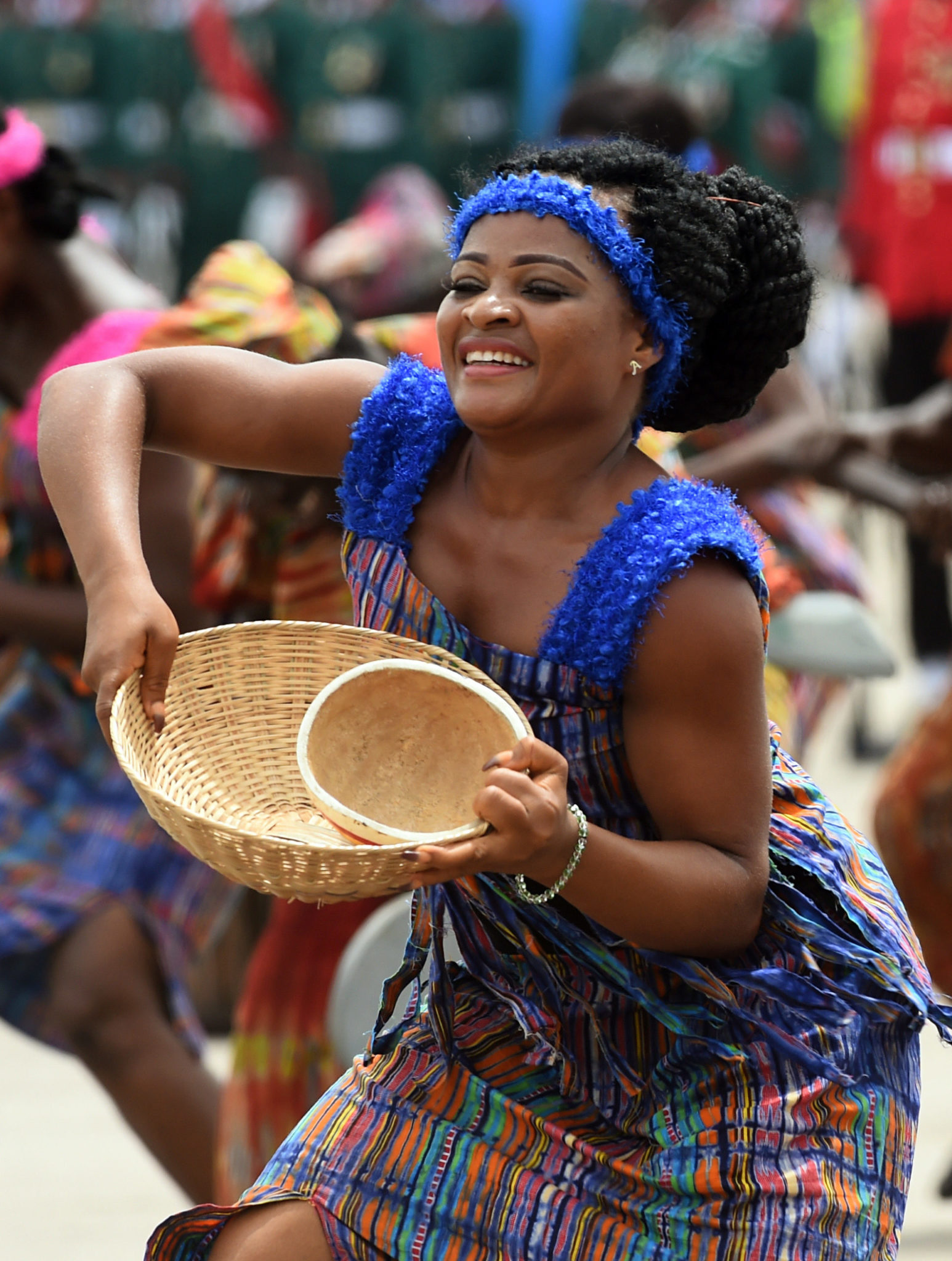
A member of the National cultural troupe of Nigeria performs during the Democracy Day celebrations in Abuja, on June 12, 2019. – Nigeria celebrates the Day of Democracy on June 12, commemorating the country’s first free elections, on June 12, 1993, after a decade of military rule. (Photo by PIUS UTOMI EKPEI / AFP)
Until the return to civil rule in 1999, the military was in power in Nigeria for a combined total of 28 years. And, as is perhaps to be expected from a society that had languished for so long in the grip of military rule, Nigerians (or is it just the Nigerian elite?) have developed a love-hate relationship with soldiers. Their despotism was barbaric – as seen during General Sani Abacha’s rule from 1993-1998. Their barbarism is seared into the public imagination and preserved for popular culture in music and urban lore. Yet, paradoxically, few condemnations of the political class were ever complete without an allusion to the need for a “strong man”, a corrector with a horsewhip. Material experience of military rule notwithstanding, the myth of the man on horseback – the exacting but benevolent agent who rides out of the barracks to set a wayward political class straight – maintains a puzzling grip on the Nigerian mind. There are signs that this myth is decreasing in appeal.
Indeed, the decline in its influence is arguably the main achievement of Nigeria’s democratic decades since the generals went back to their barracks. This is not the same thing as saying that people are totally happy with their lot under democratic rule; as a matter of fact, most recent polls show a worrying level of disenchantment. Nevertheless, the more distant the experience of military rule, the greater has been societal reconciliation to the reality of democracy as the only game in town. Broad criticisms of capitalist democracies have become louder and more trenchant across the western world over the past decade. The 2008 economic crisis brought the western elites’ pursuit of their own interests, often to the detriment of everyone else’s, under an intense spotlight. Similarly, Nigeria’s elite is often accused of hijacking the democratic process. Such criticisms take on especial resonance in the Nigerian context when seen in the light of the country’s socio-economic and political characteristics. Among these is the rightly belaboured fact that Nigeria is a petro-state. In petro-states, economic power ultimately flows from a barrel of crude oil.
This incentivises the political class to put the imperatives of cartel politics before the needs of domestic civil society. Political scientists agree that unfettered access to oil cash was a key factor in the character and duration of military rule in Nigeria. Unaccounted oil revenue gave an impetus to political centralisation. Civil society argued that decentralising power (if at first only on paper) would bring opportunities to reimagine the state. The first aim was to reduce the country’s dependency on oil. Ultimately, though, the aim was also to prise the state from the clutches of a predatory elite. It is questionable whether these goals have been achieved. Yet the lessons about the protean character of elite politics couldn’t be clearer. The spectre of elite power still stalks the Nigerian political landscape. Nigerian elite power is still based on simultaneously exploiting and deepening the crisis of under institutionalisation.
Yet, as a quick survey of the democratic process over the past 20 years shows, harping excessively on the elite’s cogency and power underestimates (i) the extent to which elite and popular politics fuel and feed off each other; and (ii) the extent to which elite-subaltern interaction exists at the mercy of powerful cultural forces. Some evidence of this can be found in the (so far unsuccessful) campaign to stamp out corruption from public life. In his inaugural speech as president of the newly inaugurated Fourth Republic in May 1999, Olusegun Obasanjo described corruption as “the greatest single bane of our society today” and expressed regret at “the full-blown cancer it has become in Nigeria”. Instructively, even as he promised in the same address to tackle corruption “head-on at all levels”, Obasanjo also predicted that “the beneficiaries of corruption … will fight back with all the foul means at their disposal”. As it happens, Obasanjo was right on both scores – about the level of Nigeria’s moral improbity, and about the capacity of corruption to take the fight to its enemies.
Given the new president’s clear determination to stamp out corruption, it comes as no surprise that one of the most important (and for the same reason, most controversial) achievements of his administration was the establishment in 2003 of the Economic and Financial Crimes Commission (EFCC) under the leadership of Nuhu Ribadu. For anti-corruption activists and the general public, the EFCC was the institutional symbol of a deep-seated desire to see the ogre of corruption finally slain. Ribadu carried out the commission’s brief with gusto. For a brief spell, fear of the EFCC was the beginning of wisdom among the political class. But this golden era would prove to be short-lived, as the EFCC was gradually undermined by accusations that it was nothing more than a sinister plot trained on the heart of the opposition. Some have argued that Ribadu’s campaign was tilted against the opposition elite. But the real issue is that, as Obasanjo had predicted, corruption fought back with a vengeance.
By the time of the Umaru Yar’adua and Goodluck Jonathan (2010- 2015) administrations, the EFCC was politically neutered, just another feature of Nigeria’s vast bureaucratic landscape. A detailed analysis of the reasons behind the EFCC’s political emasculation is beyond the scope of this analysis. What deserves mention from the perspective of this synopsis is, first, the light it throws on elite politics in the country, and second, the questions it poses about effective mechanisms for tackling corruption. It would be a mistake to assume that corruption and its politics are the business of the elite alone. If there is one overarching insight from the drama of corruption and the anti-corruption campaign in Nigeria, it is the extent to which the state, the political elite and the wider public are almost equally implicated. Corruption is not the only arena in which progress has been tenuous. The Nigerian state also remains impervious to reconstruction. To be sure, it is not quite the uncivil state of old, thanks in part to new democratic constraints.
But it can still be heavy-handed: the casual molestation of private citizens by state officials is still par for the course in many urban spaces. And that is because, as mentioned earlier, the state’s almost exclusive access to the levers of oil revenue gives it the prerogative. Even so, it is a state that is now largely demystified, particularly from the perspective of total control over the means and methods of violence. The ruling elite’s reaction to the Niger Delta and Boko Haram insurrections respectively exemplifies this demystification. Though short-lived, the presidency of Umaru Musa Yar’adua will at least be remembered for one thing – the proposal, in 2009, that Niger Delta militants, who had battled Nigerian troops to a standstill and endangered oil production, should be given a general amnesty. His successor, Goodluck Jonathan – no doubt sensing an opportunity to do well by his Ijaw co-ethnics – ran with the scheme and put additional flesh on its bones.
To put things in perspective: we have seen the Nigerian state punishing Ken Saro-Wiwa’s middle class resistance with a judicial hanging, and then offering an olive branch to elements who had repeatedly blurred the distinction between resistance and criminality. What explains the federal government’s change of tactic? One view, charitable in regards to the state’s intentions, holds that the later embrace of amnesty was dictated by a desire for peace in the troubled region, so that oil production could proceed. Another view holds that the military, after years of chronic disinvestment and corruption, has lost its monopoly on the use of violence. This became tragically clear with regard to the Boko Haram insurgency. The military has struggled to muster the force, technical wherewithal and logistical savvy required to dislodge insurgents who moved rapidly to impose themselves on vast territories across the north-eastern states. That there is a Nigerian democracy at all to evaluate is due mainly to a resurgent civil society.
Following the cancellation of the 12 June, 1993 presidential election by the military regime of Ibrahim Babangida, who held power from 1985 to 1993, Nigeria descended into a political crisis from which arguably it did not fully emerge until the return to democratic rule in May 1999. The cancellation was rightly seen as a move designed to keep the military in power. It set the stage for a showdown between the state and civil society that would dominate the next six years. Although civil society would be beaten down, especially during the Abacha era (1993- 1998), the successful 1999 election and the restoration of civilian rule suggested that civil society had effectively won the war. Yet that wave of civil activism did not last long. First, even before an unprecedented coalition of workers, students, journalists, professionals, religious groups and prodemocracy activists achieved its overarching goal of defeating the military, ideological and personal fractures started to pull it apart.
Second, as the military withdrew into the barracks, leaving a vacuum of sorts and opening up new spaces within the state, many civil society activists went into politics to implement policy ideas that they had previously canvassed. Third, the world in which civil society activists had campaigned for the restoration of democratic rule in the early 1990s was radically different from that in which the new civilian regime awoke in 1999. It was a world that would change even more fundamentally as the 20th century gave way to the 21st. During the Fourth Republic, Nigerian universities became a hotbed of intermittent strikes and trade disputes. According to one estimate, some 1,281 working days, or about four years, were lost to various strike actions called by the Academic Staff Union of Universities (ASUU) over this 20-year period. ASUU’s declining influence since then is emblematic of the decline of trade unionism in general. The Nigeria Labour Congress (NLC), once a key ally of the intelligentsia, emerged from the military era distinctly the worse for wear, its heroics during the struggle against military despotism a distant memory.
Both ASUU and the NLC had been veritable redoubts of expertise and progressive activism. Their continuing travails, combined with changes in the structure of the media (for instance, the rise of digitisation and the emergence of media owners and proprietors with no apparent links to the traditional elite) created a notable breach in the emergent public sphere. Religious politics has also been of consequence in the democratic era. Indeed, the inauguration of the Fourth Republic coincided with the ascendance of Pentecostalism as the dominant form of Christianity. Not only is Pentecostalism currently the most visible and most ebullient expression of Christianity, its impact on other Christian denominations, the Islamic competition, and the domain of popular culture in general, has been nothing short of profound. Pentecostalism has affected both state and civil society in almost equal measure. In the first place, some of the most influential political figures in the Fourth Republic have been self-confessed Pentecostals.
Furthermore, politics in the Fourth Republic has been more or less superintended by powerful Pentecostal pastors, who have combined with powerful politicians to create an uber theologicopolitical elite. To this extent, Pentecostalism has been an unwitting stabilising force for Nigerian democracy. The Pentecostal elite, which is strategically positioned between state and civil society, is contributing to nascent power formation by producing and disseminating spiritual “texts” (for example, prophecies) that ground events in metaphysical frames beyond the reach of democratic politics and institutions. On balance, Pentecostalism has outflanked Islam, its historical rival, for political power and influence. Both Pentecostal presidents, Obasanjo and Jonathan, wore their religious identity on their sleeves – the latter more opulently than the former. Both Muslim presidents, Umaru Musa Yar’adua (2007-2010) and Muhammadu Buhari (2015 – ), were forced to make political moves that implied recognition of the power of Pentecostalism and the Pentecostal elite.
When Pentecostal pastors themselves are not running for office, they have a say in who does. Since 1999, Nigeria has alternated between spells of surplus and scarcity in tandem with the rise and fall of oil prices. Overall, the state has failed to steer the economy away from reliance on a single commodity that is subject to extreme price cycles. This remains the country’s Achilles heel. The Nigerian state as we know it would not exist without oil revenue. Given that oil rents are still so important in gaining access to power, politics tends to take on aspects of warfare. Politics is the only game in town, and it is played on a winner-takes-all basis. Short of a drastic rethinking of its economic fundamentals, political competition in Nigeria is destined to remain a lethal business. It is a real question how long Nigerian democracy can survive if the country’s economy continues to splutter. The good news is that few people now think that the man on horseback holds a magic wand.
Ebenezer Obadare is professor of sociology at the University of Kansas, in
the US, and fellow of the Institute for Theology and Religion, University of South
Africa. His latest book is Pentecostal Republic: Religion and the Struggle for
State Power in Nigeria (Zed, 2018).

